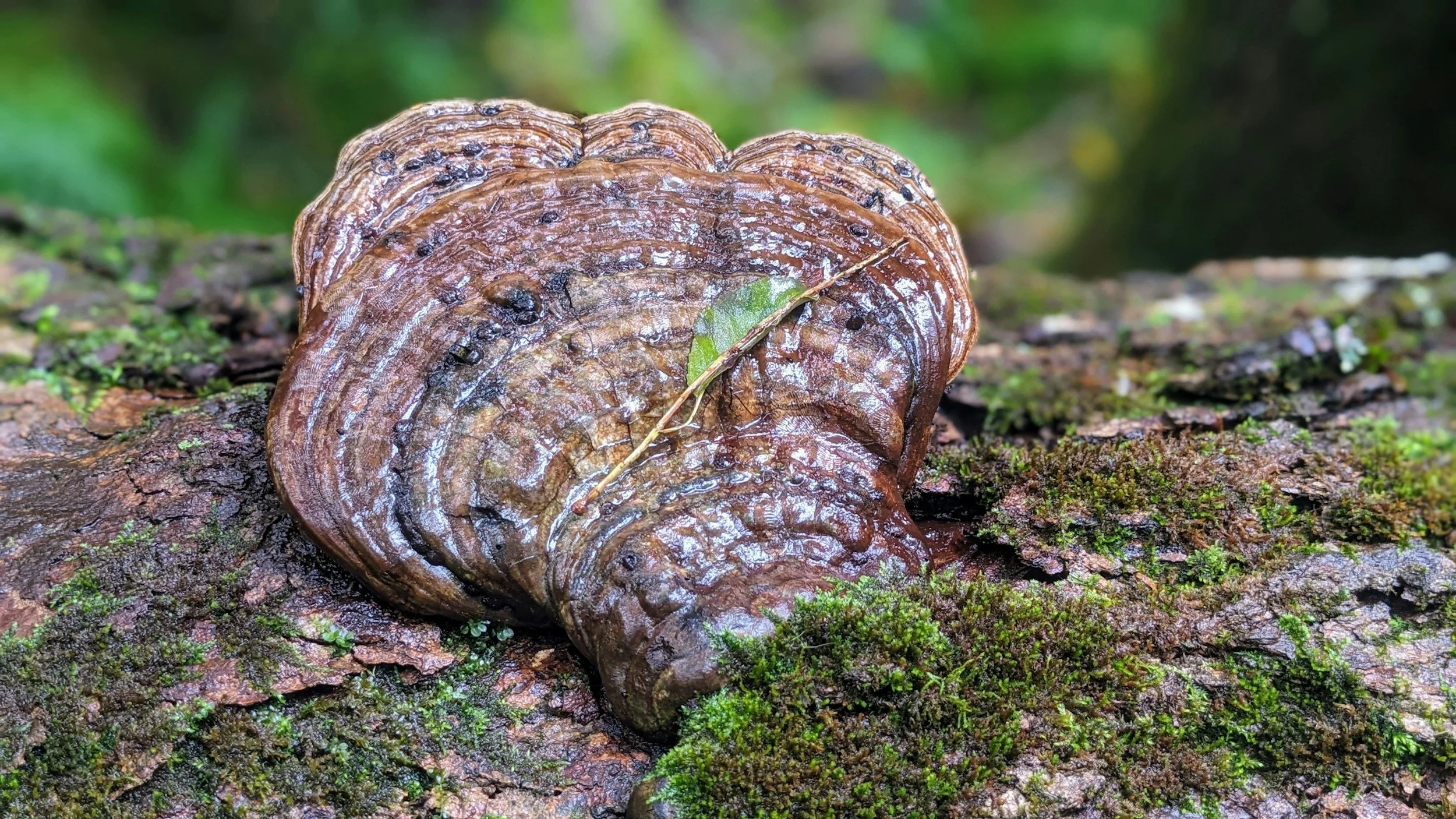Reishi (Ganoderma lucidum)
Also known as: Lingzhi, “The Mushroom of Immortality”
Primary compounds: Triterpenes, polysaccharides, ganoderic acids, beta-glucans
Origin: East Asia — traditionally harvested from decaying hardwood trees
Traditional use: Ancient tonic for longevity, immune balance, and spiritual cultivation
What It Is
Reishi has been called The Mushroom of Immortality for thousands of year, and for good reason. In Traditional Chinese Medicine, it was reserved for emperors and spiritual healers, used to calm the mind, strengthen the body, and extend life.
Today, Reishi remains one of the most respected medicinal mushrooms for its ability to restore balance at every level, physical, emotional, and energetic. It’s a true adaptogen: regulating the immune system, calming inflammation, supporting liver detoxification, improving sleep, and helping the body adapt to stress.
In functional medicine, Reishi is often viewed as a foundational regulator, one that doesn’t force a specific outcome but helps systems communicate properly again.
Key Active Compounds
Triterpenes (ganoderic acids): Potent anti-inflammatory and hepatoprotective compounds that also calm histamine response.
Beta-glucans: Modulate immune activity - strengthening defense while preventing autoimmune overreaction.
Polysaccharides: Support gut health, liver detoxification, and energy balance.
Peptidoglycans & sterols: Support cardiovascular and cholesterol regulation.
Core Therapeutic Actions
Research Highlights
Modern research supports Reishi’s role as a broad-spectrum immunomodulator, hepatoprotective, and adaptogenic agent. Studies demonstrate improved antioxidant capacity, reduced inflammatory markers, better sleep quality, and enhanced immune balance. It’s often recommended in integrative protocols for autoimmune support, recovery from chronic stress, and whole-system regulation.
How to Use
Powdered extract or capsule: 500–1500 mg daily for steady adaptogenic support.
Dual-extraction tincture: Delivers both water- and alcohol-soluble compounds (polysaccharides + triterpenes).
Tea or decoction: Traditionally simmered with licorice or ginger for calming, restorative benefits.
When to take: Evenings are ideal for Reishi due to its naturally calming and parasympathetic effects, but it can be used morning or night depending on individual response.
Precautions
May slightly lower blood pressure and blood sugar.
Use caution with anticoagulant or immunosuppressant medications.
Choose fruiting-body extracts over mycelium-grown products to ensure full-spectrum benefit.
Eleeo Insight
Reishi is the medicine of rest, a teacher of balance, not urgency.
It reminds us that healing happens in stillness, not in striving.
It’s the perfect mirror for today’s world: calming inflammation in the body and noise in the mind. At Eleeo, we see Reishi as both a physical and spiritual adaptogen, helping you slow down, breathe deeper, and reconnect to your innate rhythm of restoration.
Quick Reference
Properties: Adaptogenic • Anti-inflammatory • Antioxidant • Immunomodulatory • Hepatoprotective • Calming
Supports: Immunity • Detoxification • Sleep & stress recovery • Adrenal health • Heart & liver function


